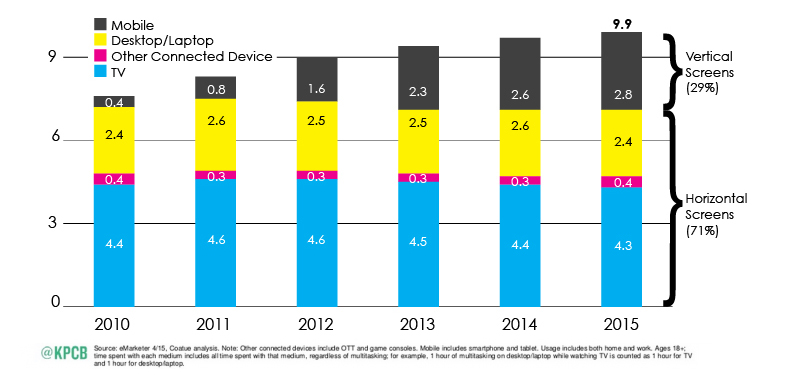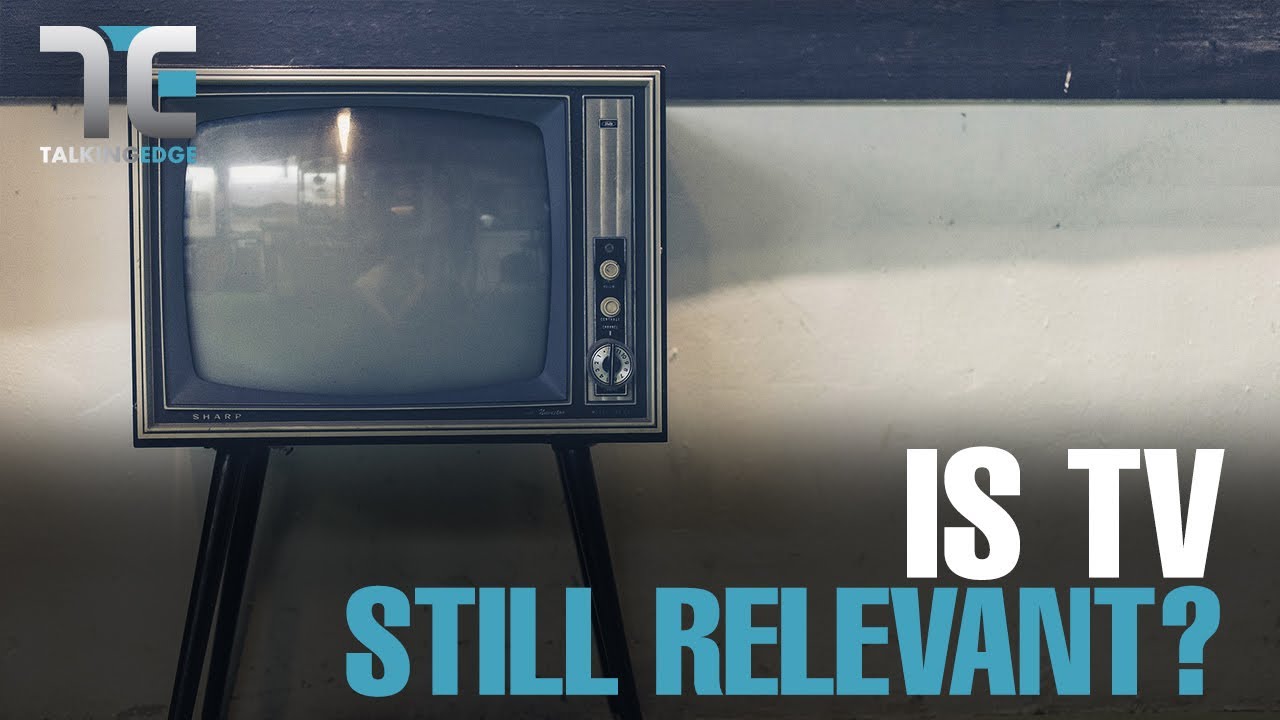How relevant is still TV for your brand?
We are smarter and smarter consumers, more up-to-date with everything that is new and happening in the world of technology, people constantly changing and improving their laptops, mobile phones and software that they are using. Moreover, 2017 proves to be the first year that the media investments in digital are surpassing the TV ones. In this context, it’s only natural for a CEO or a marketing specialist to wonder how relevant is still TV for the brand they are taking care of?

In other words is video killing the radio star? Or is it a non-subject that the specialists are over-exaggerating talking about? What do you think? Well, this is what we think.
First of all we believe that there is not a general answer of yes or no. The right answer for your brand will come from your target: who are they, what are their consumption preferences, their passions, hobbies, desires, etc. Better knowing your target will give you the right answer. Because if you are looking at the younger generation the answer is pretty easy, but if you are targeting the Millennials or the older generation you will have for sure another look at the situation and things will not seem that much black and white.
Along with the channels and devices available for watching TV, the ways for brands to reach consumers through the medium are proliferating. Quoted by Marketing Week, Otto Rosenberger, CMO at Hostelworld.com, believes that TV buying is changing, and with good reason. He says: “It really always starts with being obsessed about where the customer is. It’s about where they are and what drives them, which drives our creative and media decisions.” Research released by Ofcom earlier this month shows that while live television remains hugely important, catch-up TV viewed via the internet and programming premiered online are taking up an increasing share of viewing time for younger audiences in particular. It reveals that today, only 50% of 16- to 24-year-olds’ TV consumption is through live television, rising to 61% for 25-to 34-year-olds.
“The overarching shift, therefore, is in the power of technology and the internet. It is not only changing the way people watch TV, it is also creating a significant change in the way TV advertising is being traded towards targeting specific segments of audiences known to be watching rather than programmes that research panel data suggests they might see,” explains Marketing Week.

Not a long time ago, Turner Broadcasting and Horizon Media partnered on with marketing-analytics company MarketShare, which meta-analyzed thousands of marketing optimizations used by major advertisers from 2009 to 2014. MarketShare’s analysis found that TV advertising effectiveness has remained steady during that time period and outperforms digital and offline channels at driving key performance metrics like sales and new accounts. The study also showed that networks’ premium digital video delivered higher than average returns when compared with short-form video content from non-premium publishers. More on the main results you can read here.
Moreover, we need to think about the fact that a deep investigation of the decision journey often reveals the need for a plan that will make the customer’s experience coherent—and may extend the boundaries of the brand itself. The details of a customer experience plan will vary according to the company’s products, target segments, campaign strategy, and media mix. But when the plan is well executed, consumers’ perception of the brand will include everything from discussions in social media to the in-store shopping experience to continued interactions with the company and the retailer.
“Consumers’ perception of a brand during the decision journey has always been important, but the phenomenal reach, speed, and interactivity of digital touch points makes close attention to the brand experience essential—and requires an executive-level steward. At many start-ups the founder brings to this role the needed vision and the power to enforce it. Established enterprises should have a steward as well. Now is the time for CMOs to seize this opportunity to take on a leadership role, establishing a stronger position in the executive suite and making consumers’ brand experience central to enterprise strategy,” said David C. Edelman for Harvard Business Review.

A study done by Arris showed that 84% of respondents wanted to fast forward through the ads they watch, while 60% of them download or record shows so they can skip commercials. Even Super Bowl ads have lost their effectiveness: a 2014 study showed that 80% of them do not increase sales for the companies running them. The increased use of smartphones and tablets also detracts from TV commercials’ relevance. A study in May 2015, quoted by The Guardian, showed that researchers found that viewers who focused just on the TV screen were able to recall 2.43 out of every three brands mentioned, while smartphone and tablet users only managed to recall 1.62 on average.
Moreover, advertising’s even losing its role as an information source: a study by Mindshare earlier in 2015 showed that the percentage of Americans who said advertising helped them learn about products and services dropped from 52% in 2005 to 41% in 2014.
Still, all in all, TV is still relevant and will still be as long as the brands will know how to adapt to the new changes it brings and will know how to showcase its added value. As long as the TV advertising will continue to adapt and become better and more relevant for its audience, it will of course remain very important.
On how brands can optimize their TVCs to drive product discovery, you can read here.
Top traits that make a female a successful entrepreneur
Even in minority when it comes to their numbers, compared to the men who run their own businesses or are top managers, the women possess a series of qualities that make them very suited for the position and, sometimes, even better, than the men, in some fields of activity.
According to a KPMG study, 83 percent of the female entrepreneurs and business owners surveyed think leadership is the most critical trait for a business founder or CEO to possess, while 82 percent think it’s confidence.
“Building a company – and maintaining its success – takes confidence, determination and the ability to take risks. Women entrepreneurs who are able to take these traits and combine them with a strategic vision for their business will not only capitalize on today’s climate of disruption, but they will be the disruptors themselves,” Lee Anne Sciambra, managing partner of KPMG LLP’s New Orleans office and leader of the Houston Business Unit Private Markets Group, said in a statement, quoted by businessnewsdaily.com.
Other qualities that we believe are important are:
Integrity. One doesn’t need to leave victims in her path to be victorious. You don’t need to step on others to step to the next level. Integrity must be the very core of your character. Always put honor first and live by your convictions. As you gain respect and trust, your company will grow. People seek to do business with those they trust.
Perseverance & persistence. They work hand and hand with the power never to give up, no matter how big are the challenges you are confronted with. Women are used to overcoming obstacles everyday, from mentality to perception ones, and tend in general to have a big inner strength. They know how to use the adversity to their advantage.
Being strong–minded & confident in her power. Strong minded doesn’t mean imply being rude, conceited or destructive. On the contrary, a strong-minded woman displays confidence. According to entrepreneur.com, “when you’re strong minded, you’re empowered, possess a healthy self image and take responsibility for your life. The entrepreneurial spirit, by its very nature, requires us to consider possibilities that most aren’t brave enough to”.
Confidence is essential in winning clients and building a profitable business. A person that shows confidence in herself is reliable and wins people’s respect, earns their trust and gains a solid reputation. As first impressions are always really important is essential to show you possess that skill, especially in new business meetings.
Ambition. This is one skill that no person can deny it’s usually equal to “girl power”. Every good leader is known for being really passionate and ambitious about what he / she is doing and showing day feature each time. As Katy Cowan was writing for theguardian,com,“you have to really want something if you’re going to succeed. And you should never settle for second best. Always strive to push forward. Always aim for the top”.
Courage. One cannot start the path of the entrepreneurial road without having at least a portion of courage on the back. Diving into the unknown, facing all the possible problems and difficulties takes a lot of force of character and power. Not everybody can be an entrepreneur, let alone a successful one.
Being determined and focused. Never lose the sight of your business goal. They should be committed your short- and long-term goals to writing, recording how and when you’ll achieve them. Post your goals in plain sight and review them often. Record the reward when the goal is attained. Remember that you can’t hit a mark you can’t see, and continual success demands a plan.
Hard work. Women are famous for putting a lot of work in everything they do, for being perfectionist, both in the professional and personal life. Success cannot be achieved without sacrifices and a lot of time and energy invested. They know it and are not afraid to show it.
Showing compassion. We are not Robots and thank God for that. Emotions make us who we really are and showing your human side is essential if you aspire to being a leader. Moreover, charity and compassion allow you to make a difference in the lives of others, a quality that is more and more searched for today. A woman with a compassionate heart can achieve a great deal of influence and positive image that will help her business thrive.


